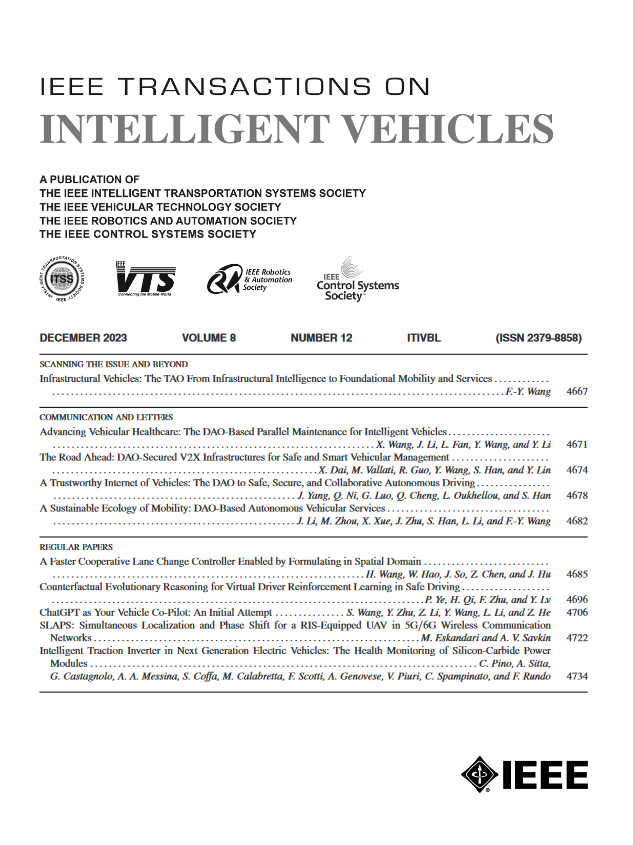YOLO-Adaptor: A Fast Adaptive One-Stage Detector for Non-Aligned Visible-Infrared Object Detection
IF 14
1区 工程技术
Q1 COMPUTER SCIENCE, ARTIFICIAL INTELLIGENCE
引用次数: 0
Abstract
Visible-infrared object detection has attracted increasing attention recently due to its superior performance and cost-efficiency. Most existing methods focus on the detection of strictly-aligned data, significantly limiting its practical applications. Although several researchers have attempted to explore weakly-aligned visible-infrared object detection, they are limited to small translational deviations and suffer from a low detection speed. This paper first explores non-aligned visible-infrared object detection with complex deviations in translation, scaling, and rotation, and proposes a fast one-stage detector YOLO-Adaptor, which introduces a lightweight multi-modal adaptor to simultaneously predict alignment parameters and confidence weights between modalities. The adaptor adopts a feature-level alignment during the feature extraction process, ensuring high alignment efficiency. Moreover, we introduce a feature contrastive learning loss to guide the alignment learning of the adaptor, aiming to reduce the representation gap between the two modalities in hyperbolic space to implement feature spatial and distributional consistency. Extensive experiments are conducted on three datasets, including one weakly-aligned and two non-aligned datasets, and the experimental results demonstrate that YOLO-Adaptor could achieve significant performance improvements in terms of speed and accuracy.YOLO-Adaptor:用于非对准可见-红外目标检测的快速自适应单级探测器
近年来,可见红外目标检测因其优越的性能和成本效益而受到越来越多的关注。现有的方法大多侧重于严格对齐数据的检测,极大地限制了其实际应用。尽管一些研究人员已经尝试探索弱对准可见-红外目标检测,但它们仅限于较小的平移偏差,并且受到检测速度低的影响。本文首先探讨了平移、缩放和旋转等复杂偏差的非对准可见红外目标检测,提出了一种快速单级探测器YOLO-Adaptor,该检测器引入了一种轻量级的多模态适配器,可以同时预测模态之间的对准参数和置信度权重。该适配器在特征提取过程中采用特征级对准,保证了较高的对准效率。此外,我们引入特征对比学习损失来指导适配器的对齐学习,旨在减少两种模式在双曲空间中的表示差距,以实现特征空间和分布的一致性。在三个数据集上进行了大量的实验,包括一个弱对齐和两个非对齐数据集,实验结果表明,YOLO-Adaptor在速度和精度方面都取得了显着的性能提升。
本文章由计算机程序翻译,如有差异,请以英文原文为准。
求助全文
约1分钟内获得全文
求助全文
来源期刊

IEEE Transactions on Intelligent Vehicles
Mathematics-Control and Optimization
CiteScore
12.10
自引率
13.40%
发文量
177
期刊介绍:
The IEEE Transactions on Intelligent Vehicles (T-IV) is a premier platform for publishing peer-reviewed articles that present innovative research concepts, application results, significant theoretical findings, and application case studies in the field of intelligent vehicles. With a particular emphasis on automated vehicles within roadway environments, T-IV aims to raise awareness of pressing research and application challenges.
Our focus is on providing critical information to the intelligent vehicle community, serving as a dissemination vehicle for IEEE ITS Society members and others interested in learning about the state-of-the-art developments and progress in research and applications related to intelligent vehicles. Join us in advancing knowledge and innovation in this dynamic field.
 求助内容:
求助内容: 应助结果提醒方式:
应助结果提醒方式:


